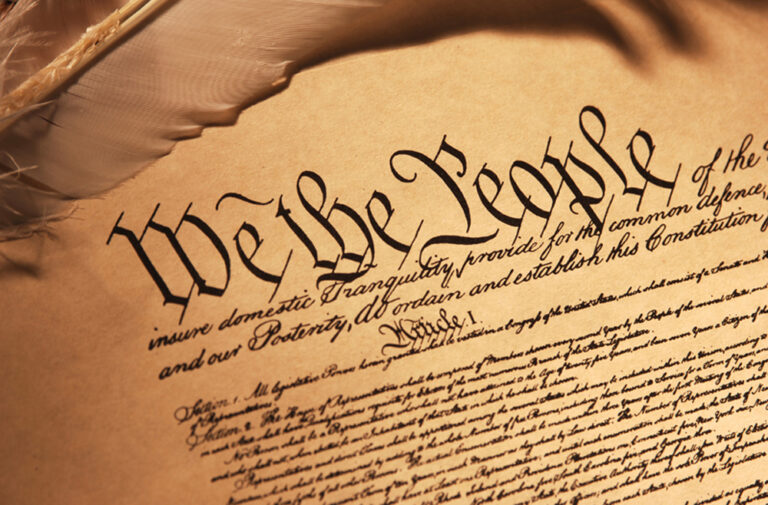

By Bethany Blankley | The Center Square
Eleven U.S. Senators now say they will challenge some states’ Electoral College votes on Jan. 6 when the Joint Session of Congress begins.
“America is a Republic whose leaders are chosen in democratic elections. Those elections, in turn, must comply with the Constitution and with federal and state law,” they wrote in a joint statement.
The group includes seven sitting Republican senators: Ted Cruz, R-Texas, Ron Johnson, R-Wis., James Lankford, R-Okla., Steve Daines, R-Mont., John Kennedy, R-La., Marsha Blackburn, R-Tenn. and Mike Braun, R-Ind.
It also includes four senators-elect who were sworn-in on Sunday: Cynthia Lummis, R-Wyo., Roger Marshall, R-Kan., Bill Hagerty, R-Tenn., and Tommy Tuberville, R-Ala.
Their announcement comes several days after U.S. Sen. Josh Hawley, R-Mo., was the first senator to announce he planned to object. “I cannot vote to certify the electoral college results on Jan. 6 without raising the fact that some states, particularly Pennsylvania, failed to follow their own state election laws,” Hawley tweeted Dec. 30.
The allegations of fraud and irregularities in the 2020 Election “exceed any in our lifetime,” they wrote, arguing that Congress should immediately appoint an Electoral Commission with full investigative authority to conduct an emergency 10-day audit of election irregularities in several disputed states.
Once the audit is completed, the states would then evaluate the commission’s findings and hold special legislative sessions in their states to certify the votes, and changes to their votes, if the audit warranted it.
“Accordingly, we intend to vote on January 6 to reject the electors from disputed states as not ‘regularly given’ and ‘lawfully certified’ (the statutory requisite), unless and until that emergency 10-day audit is completed,” the group said.
“… support of election integrity should not be a partisan issue,” they added. “A fair and creditable audit – conducted expeditiously and completed well before January 20 – would dramatically improve Americans’ faith in our electoral process and would significantly enhance the legitimacy of whoever becomes our next President. We owe that to the People.”
So far, roughly 140 U.S. Representatives have indicated they will object on Jan. 6.
Democratic former Vice President Joe Biden’s team downplayed the announcement, stating that the Joint Session of Congress’ vote count was “merely a formality.”
Democratic House Speaker Nancy Pelosi said she’s confident Biden will be sworn into office as the 46th president on Jan. 20.
Notes – Precedence for commencing an Electoral Commission
~ Congress Decides: 1877
The contested 1876 presidential election between Republican Rutherford B. Hayes of Ohio and Democrat Samuel J. Tilden of New York was the last to require congressional intervention. Tilden won the popular vote and the electoral count. But Republicans challenged the results in three Southern states, which submitted certificates of election for both candidates. While the Constitution requires the House and Senate to formally count the certificates of election in joint session, it is silent on what Congress should do to resolve disputes.
In January 1877, Congress established the Federal Electoral Commission to investigate the disputed Electoral College ballots. The bipartisan commission, which included Representatives, Senators, and Supreme Court Justices, voted along party lines to award all the contested ballots to Hayes—securing the presidency for him by a single electoral vote.
The Commission’s controversial results did not spark the violence in the post-Civil War South that some had feared largely because Republicans had struck a compromise with Southern Democrats to remove federal soldiers from the South and end Reconstruction in the event of a Hayes victory. See Electoral College Fast Facts and the House History Blog: Congress and the Case of the Faithless Elector for more information about the procedure.
The San Marcos City Council received a presentation on the Sidewalk Maintenance and Gap Infill…
The San Marcos River Rollers have skated through obstacles after taking a two-year break during…
San Marcos Corridor News has been reporting on the incredible communities in the Hays County…
Visitors won't be able to swim in the crystal clear waters of the Jacobs Well Natural…
Looking to adopt or foster animals from the local shelter? Here are the San Marcos…
The Lone Star State leads the nation in labor-related accidents and especially workplace deaths and…
This website uses cookies.